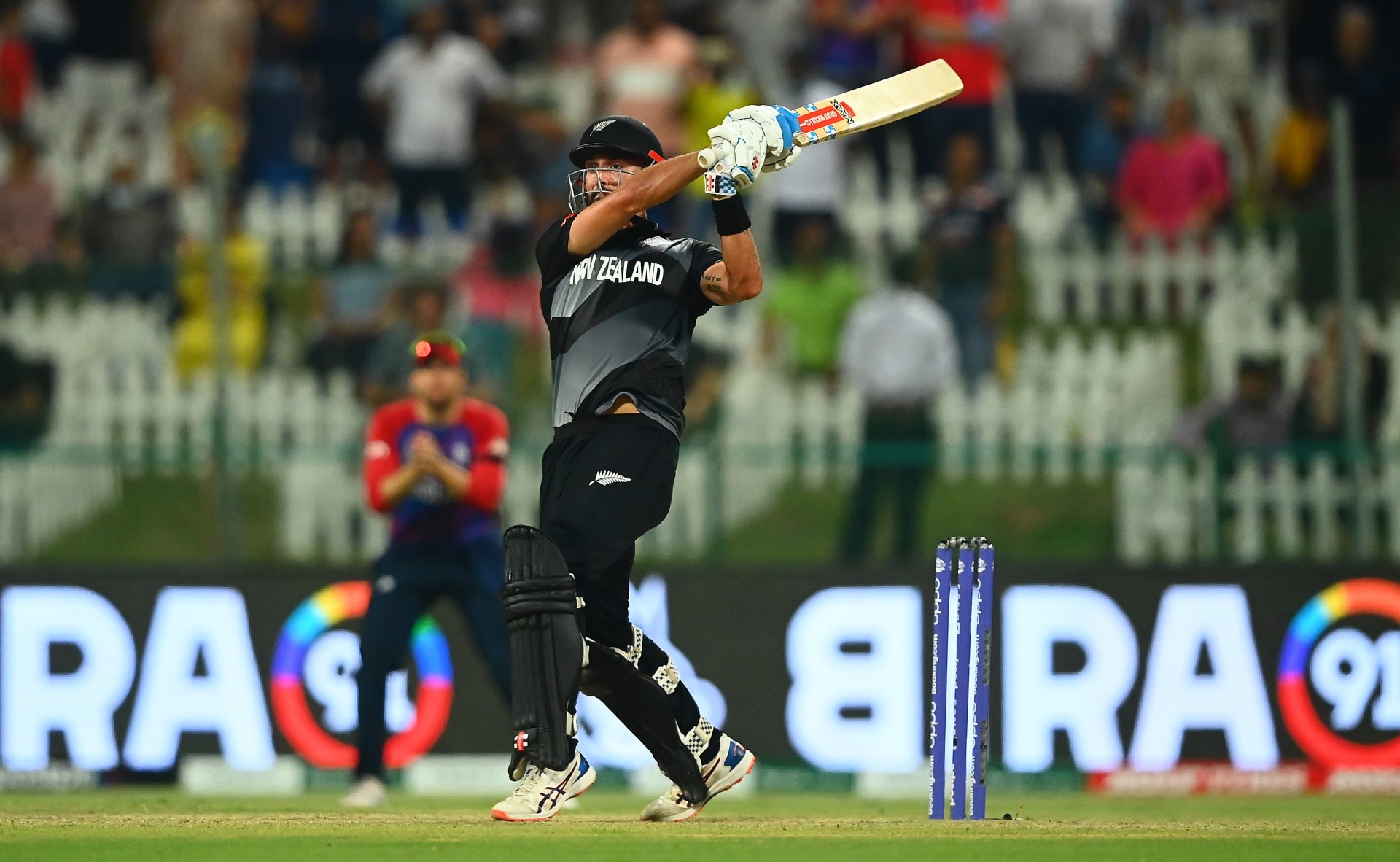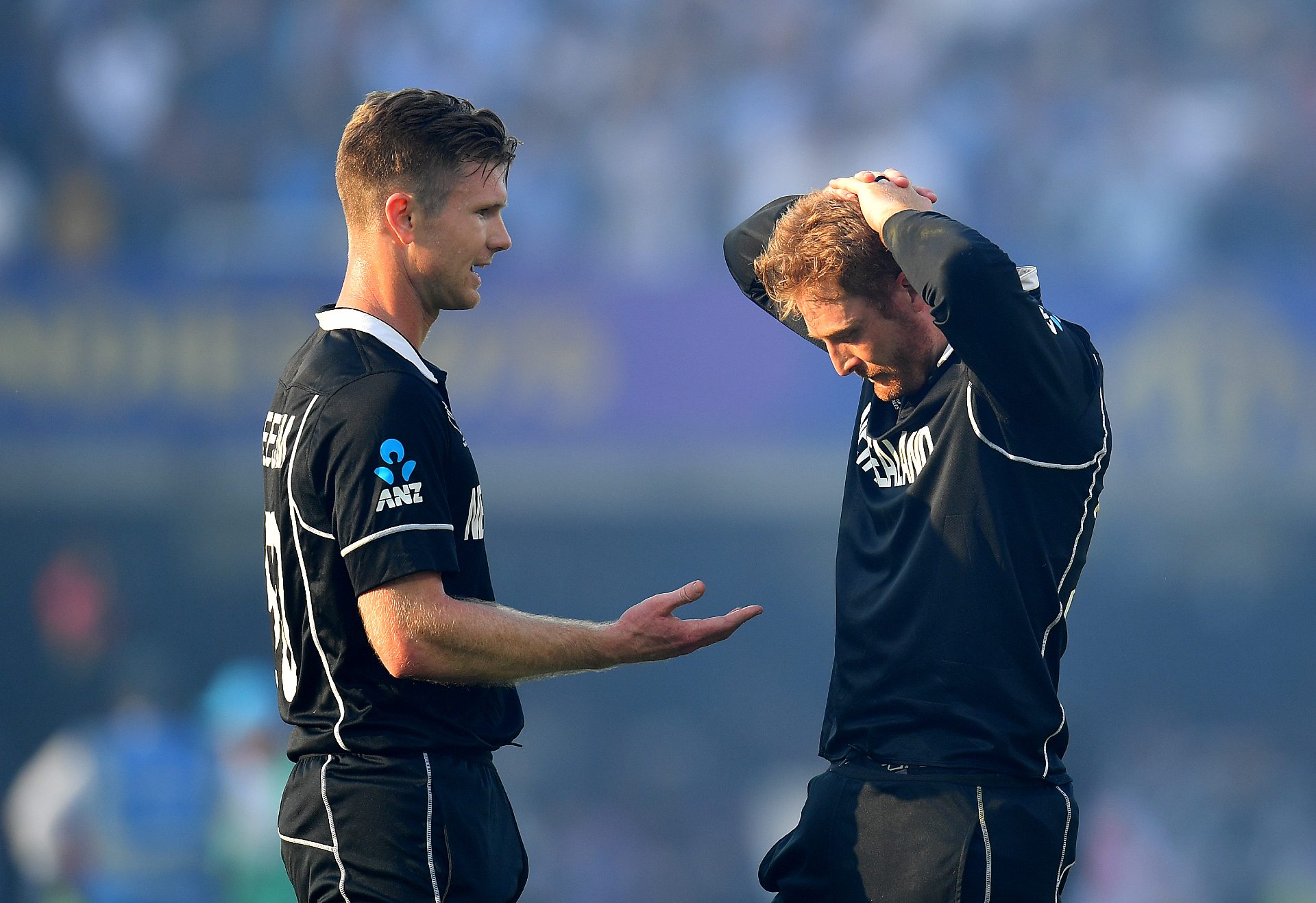 OPINION
OPINIONYou don’t win cricket matches with an over to spare needing 57 runs to win off the final 4 overs. Not in a World Cup semi-final. Not on a two-paced wicket in which, across the first 216 balls of the match, just 6 sixes were hit. Certainly not against a team with the pedigree and big-match experience of England which is led by an ice-cold tactician like Eoin Morgan.
But what do we know?
This New Zealand side keep proving us wrong. They keep scaling new heights. They keep subverting expectations. Somehow, they keep defying the odds.
Of all the things this New Zealand team is set up to do, chasing a big total is not one.
The Kiwis have an outstanding, well-rounded, experienced bowling unit that can thrive across conditions and situations but that is not the case with the batting. New Zealand’s batting is not just limited, but also flawed.
For one, they are over-reliant on Guptill for quick runs. And less-than-ideally, they have anchors - who are incapable of hitting sixes at will - at both No.3 and No.4. Such a set-up is perfect whilst chasing a low total - like they did against India and Afghanistan - but it becomes problematic when there is a necessity to score quickly.
Their No.5, Glenn Phillips, is probably their most dynamic batter, but he not only is inexperienced at the highest level, but also is better suited to flatter wickets where one can hit through the line of the ball. That is one of the reasons why, in this World Cup, his strike rate (112.98) has been almost 27 lower than his career T20 SR of 140.
And while Neesham, their No.6, can be a capable pace-hitter on his night, he is far from a perfect finisher who can be relied upon. There are rather effective and proven ways through which he can be tied down (read: bowl spin).
To round it all up, they have paper-thin depth, with the batting essentially ending with Santner at No.7. Keep in mind, Santner himself is better suited to long-format cricket, with T20 being his weakest format with the bat.
This is a side that is simply not set-up to chase 9.5 RPO for 15 overs, let alone having to do so after having lost its most explosive (Guptill) and most experienced (Williamson) batters inside the powerplay.
But New Zealand got over the line anyway.
A lazy explanation for how and why they emerged victorious on Wednesday would be to say that the Kiwis were “the better team on the day.” No doubt, they were.
But what actually enabled New Zealand to be better on the day was the infrangible self-belief that exists within the camp, powered by clarity in thought and execution.
The Kiwis were criticized in August when they named their World Cup squad two months prior to the deadline, far before any other side. But, in hindsight, the move almost exemplifies the trust and faith the management has on both the players and its own decision-making.
No back-tracking, no recanting. “You are the best fifteen, you have always been. We believe in you. Now go and do your thing.”
Only in such an environment will you have the unlikeliest of players stepping up and turning into heroes - like it was today.

Forget hitting the winning runs for the side in the semi-final, few even predicted Daryl Mitchell to be in the BlackCaps’ strongest XI. His inclusion in the side ahead of Seifert, itself, took everyone by surprise, and the move to open with him - and not Conway - was branded ‘bizarre’ and ‘puzzling’.
Yet there he was, casually playing the best knock of his life in the most important match of his career whilst batting in a position unfamiliar to him.
Rendered possible only because the skipper and the management had full faith in him to deliver.
"It's a huge testament to his (Mitchell’s) character, and the backing he's receiving from our camp, who believe in his ability immensely,” Ish Sodhi said, post the India game.
This mutual trust has enabled Mitchell to grow from strength to strength mid-tournament.
And then you have Jimmy Neesham. A comedian in the eyes of some, a bits-and-pieces average-at-best all-rounder in the eyes of the others. A player who probably wouldn’t make the starting XI of most of the top eight sides in the world.
In the eyes of the New Zealand management, though, he is a match winner. He is “their” match-winner. They back him to the hilt and trust him to get the job done.
He did it against Namibia a week ago, and today, in what was arguably the second-greatest knockout cameo in T20 World Cup history behind that of Carlos Brathwaite, he played the innings that turned the match around and propelled his side into a World Cup final.
A memorable achievement in isolation, but when you factor in the backstory of the 2019 World Cup heartbreak, it is just surreal.

New Zealand have somehow unearthed the secret to get the absolute 200% out of every single one of their players, and the upshot of the same has been dominance across ICC events.
England, no doubt, will look back and rue certain things. Despite scoring 99 off the final 10 overs, it did feel like they never hit fifth gear with the bat, and in retrospect, they were probably 10-15 runs short. Not that it would have mattered, though, given New Zealand finished the chase with an over to spare anyway.
Morgan will also wonder if he could have bowled Woakes out earlier and maybe saved the final over of Mark Wood for the death.
But all said and done, barring a couple of bad deliveries from Jordan, England did not do much wrong. They under-performed slightly with the bat but despite losing the toss, they still put up a total that almost got the better of New Zealand. They had a perfect start with the ball and also smartly navigated their way through the overs of the fifth bowler.
In the end, however, the inherent weakness (death bowling) in the absence of both Jofra Archer and Tymal Mills ended up haunting them as New Zealand, quite deservedly, stormed through to the final and dashed their dreams of a World Cup double.
It is never pleasant crashing out in the semis, especially when you’re the favorite, but Eoin Morgan, no doubt, should be proud. Not many sides can lose two key players - Stokes and Archer (two more mid-tournament, Roy and Mills) - and still manage to be dominant but England did so.
It is a testament to not just the country’s strength in depth, but the success of Morganism. The Three Lions’ showing in this World Cup, if anything, only adds to Morgan’s legacy.
The same is also true for his counterpart Kane Williamson, who has quietly built a behemoth of a side whose consistency is off the charts. Sunday will be New Zealand’s fourth ICC Event final since the start of 2015 (one title, the World Test Championship) and quite astonishingly it has come across formats.
Who is to say now that New Zealand aren’t the best all-format team in the world?
You don’t win cricket matches with an over to spare needing 57 runs to win off the final 4 overs. Not in a World Cup semi-final. Not on a two-paced wicket in which, across the first 216 balls of the match, just 6 sixes were hit. Certainly not against a team with the pedigree and big-match experience of England which is led by an ice-cold tactician like Eoin Morgan.
You don’t - only if you’re not New Zealand.